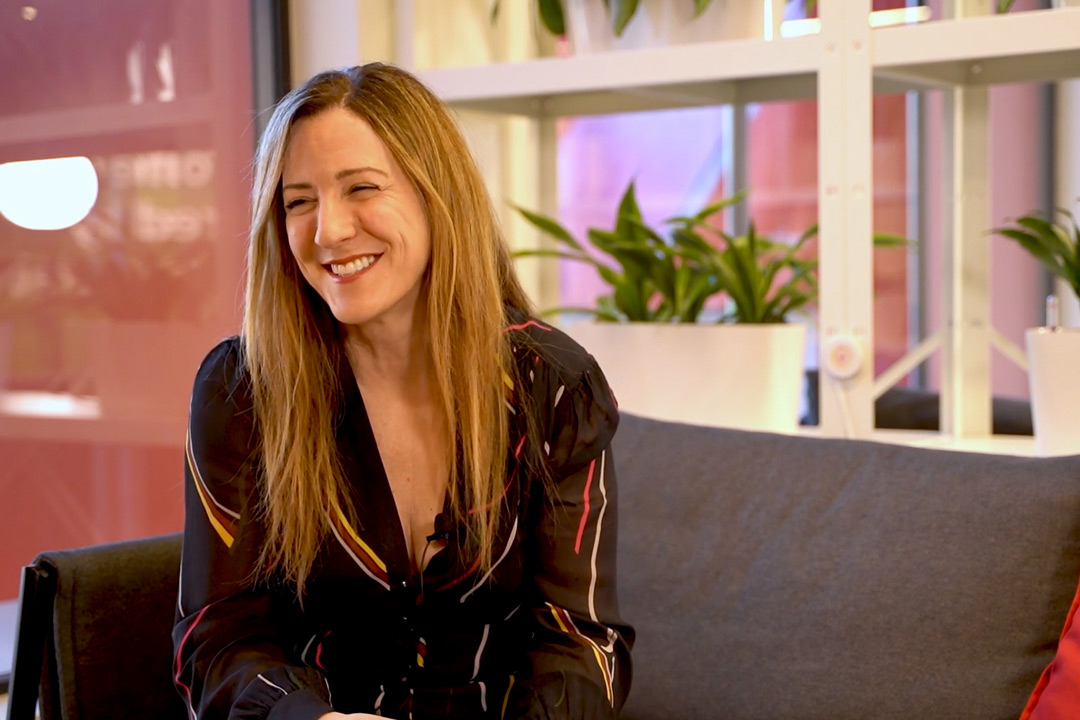The intricacies of the cloud computing market can make some business decisions seem daunting. But it doesn't have to be this way, says Nick Gliddon, Vodafone's Business Director in the UK.
Earlier this month, Ofcom published its report on the UK cloud computing market, asking the Competition and Markets Authority (CMA) to evaluate whether technical barriers are hindering innovation and adoption in this crucial area.
We are supportive of this recommendation, as this is a highly complex market which needs simplification to improve accessibility.
For the most part, businesses have already started their cloud journey. According to Ofcom research, 82% are using the cloud for storage, 76% for databases and 71% for backup and disaster recovery. Add in systems that are already commonly in the cloud – from emails to CRM and payments systems to name just a few – and it’s clear the cloud is more commonplace that some would realise.
Ofcom’s perspective is that these businesses are not getting the most of out the cloud – and we agree with them.
According to the same research, only 38% of businesses host their clients’ applications on the cloud, while 42% are hosting their own on the cloud. 79% of organisations plan to increase spend, but only 43% plan on moving more applications onto the cloud.
Cloud computing: Everything you need to know
These days cloud computing touches most aspects of our digital lives, from the apps we use to Vodafone’s mobile network itself. But what exactly is it?
Interestingly enough, the same Ofcom research suggests these challenges are more commonplace in the public sector. Public sector organisations are more likely to be later adopters (due to complexities of moving to the cloud and transparency of on-going pricing), while private companies are most likely to have migrated more fully. However, only 21% of SOHO customers and 43% of SMEs are using the cloud in some form.
The cloud is an opportunity to be more efficient, create new revenue streams and transform how business operates. We are seeing benefits, but we are only scratching the surface of what is truly possible.
The main challenge which many people will face is that of diversity and interoperability.
Let’s say you work with one cloud provider, and train your team on that specific platform. If you later want to switch or bring in another cloud platform for different workloads, what does that mean? Either reskill your team, or hire a new one. Both options are costly and time-consuming. 45% of businesses said moving data from one provider to another was the biggest challenge in using a multi-cloud environment, while 34% of companies who had more than one cloud provider said it was the skills aspect.
As Ofcom highlights, there is competition with plenty of innovative services entering the market, as well as free courses to upskill employees. But market share is concentrated between two players, who are also the most profitable. The concern is whether this is healthy for the cloud market in the UK. Diversity in a market should always be the objective.
How cloud gaming could make consoles and PCs obsolete
Just as Netflix sidelined DVDs, streaming games over the internet could transform the gaming industry - as long as developers overcome several barriers first.
This is not the only challenge which has been highlighted. How much will it cost to port data from one provider to another? How would you go about doing this? Is it even possible from an operational or financial perspective? If a company elected to switch cloud provider, would the applications and software that company uses still work?
All these concerns have prompted Ofcom to ask the CMA to evaluate the cloud computing market.
The barrier for customers isn’t necessarily a lack of understanding, but a fear of making the wrong decision, and then becoming entrenched in that position due to a lack of data, application and system interoperability. This can lead to hesitancy, one of the most difficult obstacles to overcome, especially in a period of financial constraint where every pound has to drive as much value as possible.
This is where companies like Vodafone can fit in seamlessly.
Firstly, Vodafone has worked with customers from a connectivity perspective for years. We know the business inside out and are in the best possible position to advise the right way forward. We have been operating in the cloud for years and have hired extensively to ensure our workforce is in the best possible position to help your business evolve.
Secondly, Vodafone sits in the middle of the cloud ecosystem, managing partnerships with both the cloud infrastructure providers and independent software providers.
This ensures we can make the right recommendations on which cloud partner to work with, how a multi-cloud environment could be managed effectively, and whether a private or hybrid cloud could be a better option. The objective should always be to create the best solution for your business, and the cloud companies are some of the most innovative in the world – it makes sense to partner with them.
Vodafone and Ericsson successfully trial cloud gaming on 5G Standalone network slice
88% of gamers in the trial ranked 5G SA cloud gaming experience at least 8/10, compared to 13% on non-optimised connectivity experience.
Vodafone can bring together the three elements (connectivity, cloud infrastructure and applications) into a single conversation, helping to identify the best solution for your business need. This doesn’t simply mean moving everything to the cloud in one single swoop, but smart migration to unlock the full value of cloud and decrease cost. This is digital transformation in action – a sustained programme to realise value at the right time.
Our teams of professionals can manage the complexity of cloud, making us a very useful ally. We know your business and can make the right recommendations to ensure the cloud delivers the greatest value.
Ultimately, a more diverse landscape will be healthier for the UK. With market share concentrated into a small number of companies, there could be a knock-on to innovation. The UK Government could play a role here as one of the biggest customers of technology in the country.
A cloud-first Government procurement strategy, and an emphasis on supporting small- and medium-sized suppliers, could be a catalyst to drive growth and diversity in the ecosystem. Currently, there isn’t a homegrown cloud infrastructure solution, but we could help nurture a domestic alternative in the right environment.
This is an intricate market, but with Vodafone onside, we can help customers navigate their way through the complexity. If we do the technology, you can do the business.
#TogetherWeCan
Stay up-to-date with the very latest news from Vodafone by following us on Twitter and LinkedIn and signing up for News Centre website notifications.

![Coins of Great British sterling[Adobe Stock]](https://www.vodafone.co.uk/newscentre/app/uploads/2024/06/Coins-of-Great-British-sterlingAdobe-Stock.jpg)

